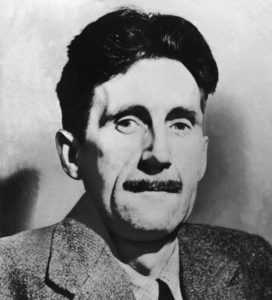In his essay, Politics and the English Language, George Orwell railed against confusing and unclear writing.

He summarised his advice in six rules, which have been the mainstay of English style guides ever since:
- Never use a metaphor, simile, or other figure of speech which you are used to seeing in print.
- Never use a long word where a short one will do.
- If it is possible to cut a word out, always cut it out.
- Never use the passive where you can use the active.
- Never use a foreign phrase, a scientific word, or a jargon word if you can think of an everyday English equivalent.
- Break any of these rules sooner than say anything outright barbarous.
Unlike writers, translators are constrained by their source text. (I also bridle at the absolute nature of Orwell’s rules.) So I have adapted them for translators:
- When translating a metaphor, simile, or other figure of speech, you don’t always need to use the direct equivalent in the target language. You may not wish to use a figure of speech at all. And if you do, try to avoid using any figure of speech that feels tired and worn out.
- When translating a source text that is packed with long words, remember that the best translation will often involve shorter words.
- If it is possible to cut a word out, consider doing so. It may make your translation clearer and more elegant.
- Avoid using the passive where the active would be a more natural choice.
- Only use a foreign phrase, a scientific word, or a jargon word if the field and register of the text mean this is the best choice or if there is no everyday English equivalent.
- Never write anything that is outright barbarous, even if the source text reads as if it was written by Attila the Hun.